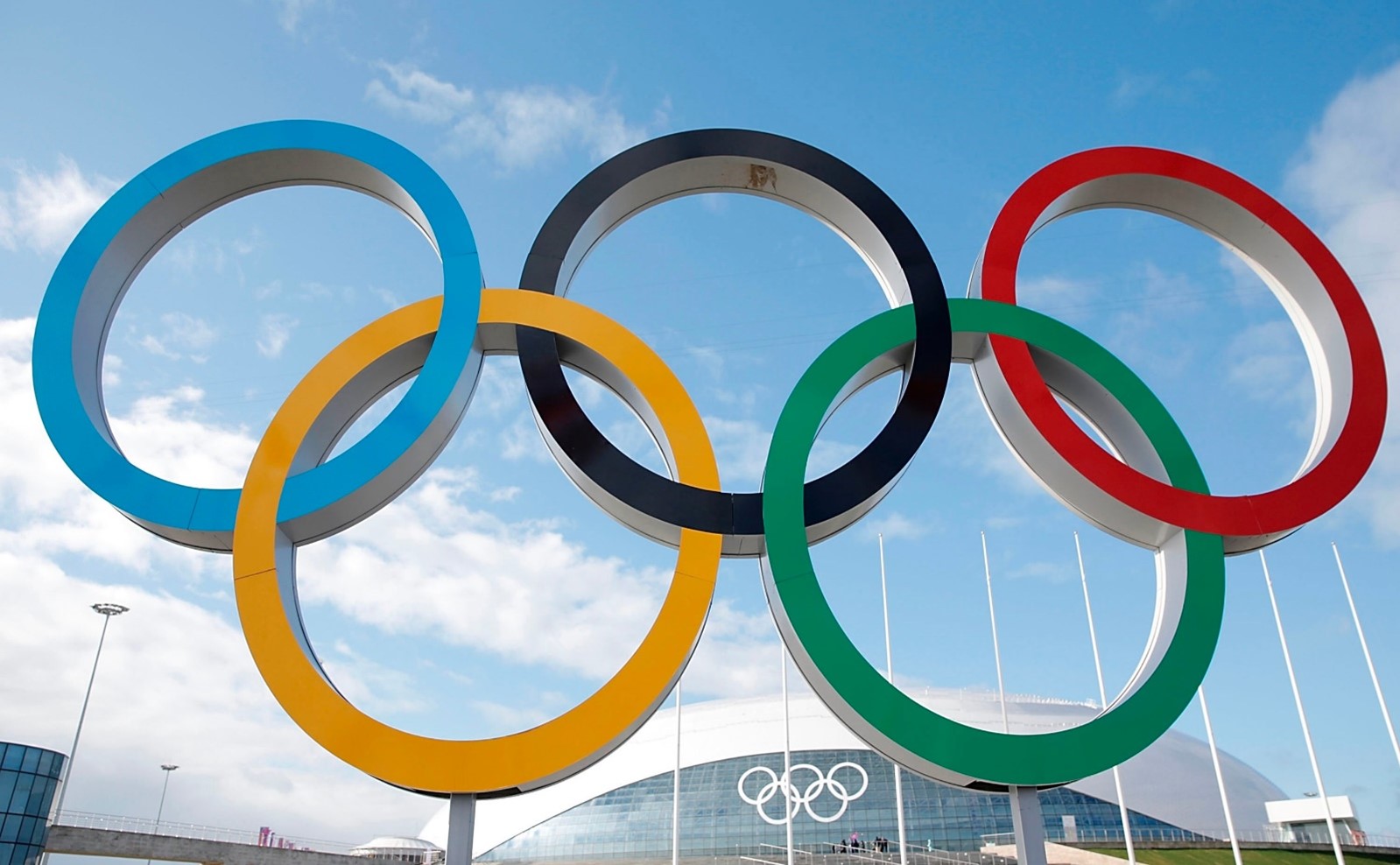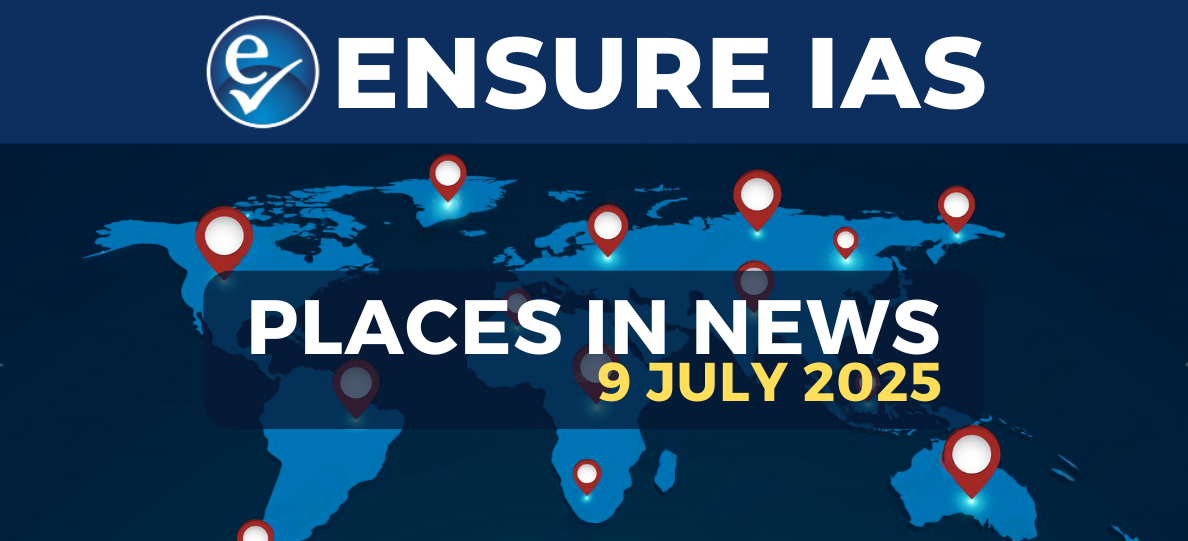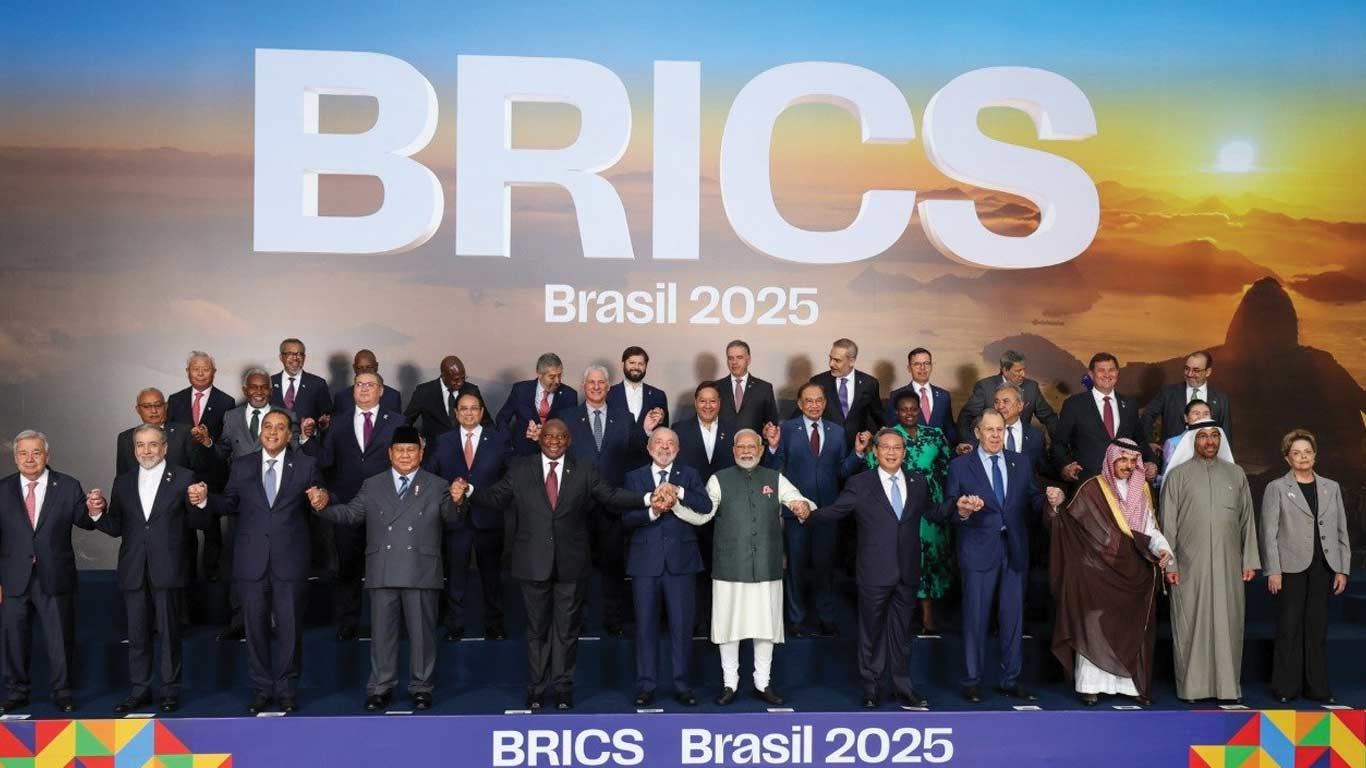- Courses
- GS Full Course 1 Year
- GS Full Course 2 Year
- GS Full Course 3 Year
- GS Full Course Till Selection
- Answer Alpha: Mains 2025 Mentorship
- MEP (Mains Enrichment Programme) Data, Facts
- Essay Target – 150+ Marks
- Online Program
- GS Recorded Course
- Polity
- Geography
- Economy
- Ancient, Medieval and Art & Culture AMAC
- Modern India, Post Independence & World History
- Environment
- Governance
- Science & Technology
- International Relations and Internal Security
- Disaster Management
- Ethics
- NCERT Current Affairs
- Indian Society and Social Issue
- NCERT- Science and Technology
- NCERT - Geography
- NCERT - Ancient History
- NCERT- World History
- NCERT Modern History
- NCERT Medieval History
- CSAT
- 5 LAYERED ARJUNA Mentorship
- Public Administration Optional
- ABOUT US
- OUR TOPPERS
- TEST SERIES
- FREE STUDY MATERIAL
- VIDEOS
- CONTACT US
Olympics
Olympics
25-10-2023

Latest Context:
Recently at International Olympic Committee (IOC) session, India has expressed its interest in hosting Olympics, 2036.
About Olympic Games
- History: The ancient Olympic Games, held in Olympia (Greece) date back to 8th Century BC and were held until 4th Century AD. The modern Olympic Games were revived in 1896, with the first modern Olympics taking place in Athens, Greece. They are held after every 4 years. Till now, only 3 Asian countries have ever hosted Olympics - China, South Korea, and Japan, with Japan hosted the games twice in 1964 and then in 2020.
- Summer and Winter Olympics: There are two main editions of the Olympic Games – the Summer Olympics and the Winter Olympics. The Summer Olympics has a wide variety of sports, including athletics, gymnastics, swimming, and team sports like soccer and basketball. The Winter Olympics focus on sports such as skiing, ice skating, and ice hockey.
- International Olympic Committee (IOC): It was established in 1894 and is a not-for-profit independent international organization based in Lausanne, (Switzerland). It is the governing body responsible for organizing and overseeing the Olympic Games. It selects the host cities for each Olympics, sets the rules and standards for the Games, and promotes the Olympic movement worldwide.
- The Olympic Rings: The Olympic flag features five interlocking rings of different colors: blue, yellow, black, green, and red, on a white background. These rings represent the 5 continents of the world and symbolize the unity of athletes from around the globe.
- The Olympic Torch Relay: Before each Olympic Games, a flame is lit in Olympia, Greece, and carried by a relay of torchbearers to the host city. The lighting of the Olympic flame symbolizes the link between the ancient and modern Olympic Games.
- Paralympic Games: The Paralympic Games are a parallel sporting event for athletes with physical, intellectual, and sensory disability. They follow the same format as the Olympic Games and occur shortly after the Olympic Games in the same host city.
- Olympic Symbols: In addition to the rings and torch, other symbols associated with the Olympics include the Olympic motto (Citius, Altius, Fortius, which means "Faster, Higher, Stronger"), and the medals awarded to the athletes.
Step-wise procedure of selecting Olympic host
- Bid Announcement and Candidature Phase: The process begins when the IOC announces that the host city selection for a specific Olympic Games edition is open. Interested cities or National Olympic Committees (NOCs) submit their intent to bid.
- Feasibility Study and Bid Documentation: Interested cities or NOCs conduct feasibility studies to determine if they can meet the requirements of hosting the Games. Those who pass the feasibility stage prepare bid documentation, which includes detailed plans for hosting the Games, including venues, infrastructure, accommodation, and budgets.
- Submission of Bid Documents: The interested cities or NOCs submit their bid documentation to the IOC by a specified deadline. The documentation is comprehensive and serves as the basis for evaluating the potential host's capability to organize the Games.
- Evaluation Commission Visit: The IOC's Evaluation Commission, composed of experts and representatives, visits the candidate cities to assess their capabilities. They inspect proposed venues and assess the bid documentation. Each candidate city makes a presentation to the IOC, outlining their vision for the Games and their plans,
- Final Evaluation Report: The Evaluation Commission prepares a final report, which is released to all IOC members. This report provides a comprehensive analysis of each candidate city's strengths and weaknesses.
- Election of Host City: The IOC members vote through the secret ballot to select the host city for the Olympic Games. The city receiving the majority of votes is awarded the hosting rights. The voting process is typically done in multiple rounds, if needed.
- Host City Contract Negotiation: Once the host city is selected, the IOC and the host city negotiate the Host City Contract. This contract outlines the responsibilities and obligations of both parties.
- Preparation and Organizing: The host city then goes through an extensive period of preparation, including building or renovating venues, improving infrastructure, and organizing the Games.
Benefits of hosting Olympic Games
- Economic Boost: Hosting the Olympics can provide a significant economic boost to the host city and its surrounding regions.
- Infrastructure Development: Hosting the Olympics often necessitates the construction or improvement of sports facilities, transportation networks, and other essential infrastructure. These investments can have long-term benefits for the host city, making it more attractive for businesses and residents.
- Tourism Promotion: The global visibility of the Olympic Games can significantly boost tourism. The exposure generated by the Games can attract more tourists to the host city and country, not only during the event but also in the years following.
- Job Creation: Preparing for and hosting the Olympics can create a substantial number of jobs, both temporary (related to event logistics) and permanent (related to infrastructure and tourism). This can help reduce unemployment.
- Cultural Exchange: The Olympics provide a platform for cultural exchange and international understanding. Athletes, officials, and spectators from all over the world come together, fostering international cooperation and goodwill.
- Enhanced Global Reputation: Hosting the Olympics can enhance a city's and a nation's global reputation and image. It can showcase a city's ability to host a major international event, boosting its standing on the world stage.
- Increased Sports Participation: Hosting the Olympics can inspire local populations to become more active and engaged in sports. The facilities and events generated by the Games can encourage people to participate in various athletic activities.
Challenges in hosting Olympic Games are:
- Financial Costs: The cost of hosting the Olympics can be very high. Building or upgrading sports facilities, transportation infrastructure, and security measures can lead to budget overruns and long-term financial burdens. These expenses can strain public resources and, in some cases, lead to debt.
- Economic Risk: There is no guarantee of a positive return on investment. The economic benefits, such as increased tourism and business opportunities, may not offset the initial costs. Host cities may struggle to recoup their expenses.
- Social Displacement: Preparing for the Olympics can result in the displacement of local communities. People may be forced to relocate to make way for Olympic venues and infrastructure, leading to social upheaval and resentment.
- Environmental Impact: The construction and operation of Olympic venues and infrastructure can have significant environmental impacts, including deforestation, air and water pollution, and the destruction of natural habitats.
- Security Concerns: Hosting a high-profile event like the Olympics requires substantial security measures. These can be expensive and challenging to manage, and there is always a risk of security threats or incidents.
- Corruption and Scandals: The process of selecting a host city and managing Olympic preparations can be susceptible to corruption and scandals. These issues can dent the reputation of both the host city and the International Olympic Committee (IOC).
Conclusion:
The entire process takes several years, from the initial bid announcement to the actual hosting of the Olympic Games. The IOC's goal is to select a city that can provide a safe, memorable, and well-organized event for athletes and spectators, while also leaving a positive legacy for the host city and the Olympic movement.



